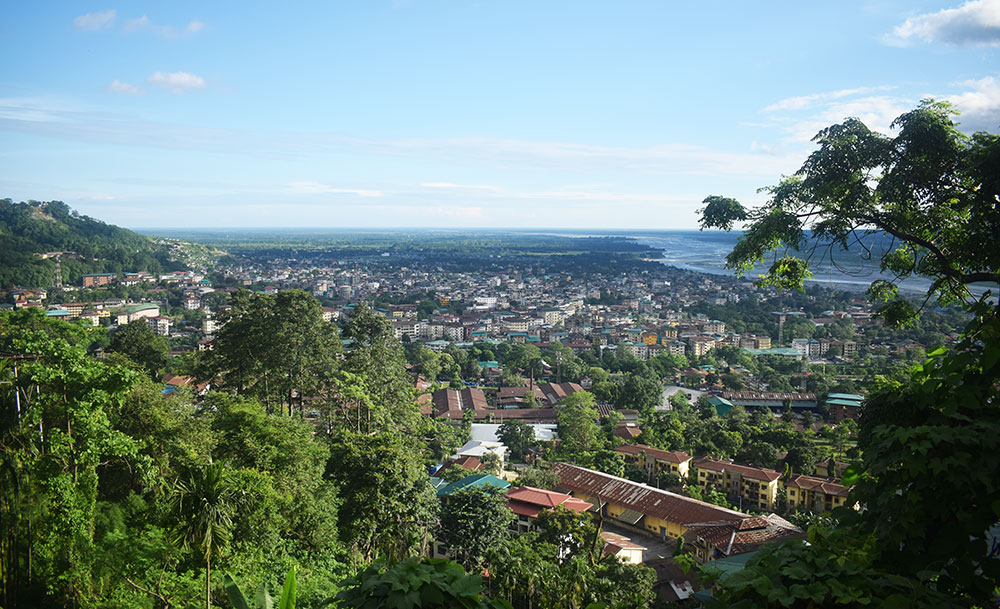…as the country inches towards the end to the ongoing outbreak in the south
Younten Tshedup
For three consecutive days, Bhutan recorded zero Covid-19 cases from the community, after the Delta variant of SARS-CoV-2 hit the country in April this year.
The two new positive cases detected yesterday were foreigners who had recently entered the country. They tested positive while in the quarantine centre.
Experts say this could be the beginning of the end of the long outbreak of Covid-19 in Phuentsholing.
A member of the Technical Advisory Group (TAG), Dr Tshokey, said that high-risk populations in the red clusters in Phuentsholing were tested between August 8 and 9, and that there were no positive cases detected.
“This is a very good sign. It seems like this is the beginning of the end of the current outbreak,” he said.
Dr Tshokey said that the fact that no cases were detected for 72 straight hours in Phuentsholing, the hotspot of the current outbreak, gave the health ministry confidence to unlock Phuentsholing, the process which was already underway. “Phuentsholing can open only when active transmission of the virus is stopped.”
Phuentsholing recorded over 600 positive cases in the current outbreak of which 188 were from the community. Samtse also reported 430 plus positive cases of this outbreak including 65 from the community.
While the majority of the cases were linked to a previous positive case, Dr Tshokey, said that people were not always true while declaring their contacts.
He said that although it was difficult to remember every single individual a person could have met (contacts), more often than not, positive people tend to hide their contacts from the officials for various reasons. “It would be much easier for us to trace the contacts and isolate them if people are honest with us. But this does not always happen. This is the biggest problem we face.”
Although there were no cases detected from the community for 72 straight hours, Dr Tshokey said that people should not become complacent and forget the threats associated with Covid-19. “Globally, there are already indications of a third wave of the pandemic where both the number of new infections and deaths are on the rise.”
Experts in India say that the third wave of the pandemic has already started to set in the sub-continent beginning this month. For more than a week, India reported a spike in new cases including death. 35,499 new cases and 447 deaths were recorded in India on Sunday.
A surge of cases in India has a direct implication on Bhutan. The recent Phuentsholing outbreak was also a result of the second wave of the pandemic in India.
Fueled by the spread of the Delta variant of the virus, experts warn that any rash decision now could send the country back to square one. The Delta variant of the SARS-CoV-2 virus is said to be 60 percent more transmissible than the initial strain of the virus first detected in China.
A Centers for Disease Control and Prevention (CDC) document states that the Delta variant is as transmissible as the chickenpox virus, where an infected individual could infect around eight to nine more individuals, on an average. In comparison, the Wuhan strain of the SARS-CoV-2 virus was almost at the level of the common flu virus in terms of transmissibility. For every one infected individual, it could spread to two more persons on average.
Dr Tshokey said that even after the vaccination, the risk of contracting the disease was still there. “You can still be infected with Covid-19 even after getting the vaccine. And despite the vaccine, you can also transmit the virus to others who are not vaccinated, who could then go on to develop severe disease.”
He added: “The coronavirus is still around, and we are always at risk.”
Edited by Tshering Palden


